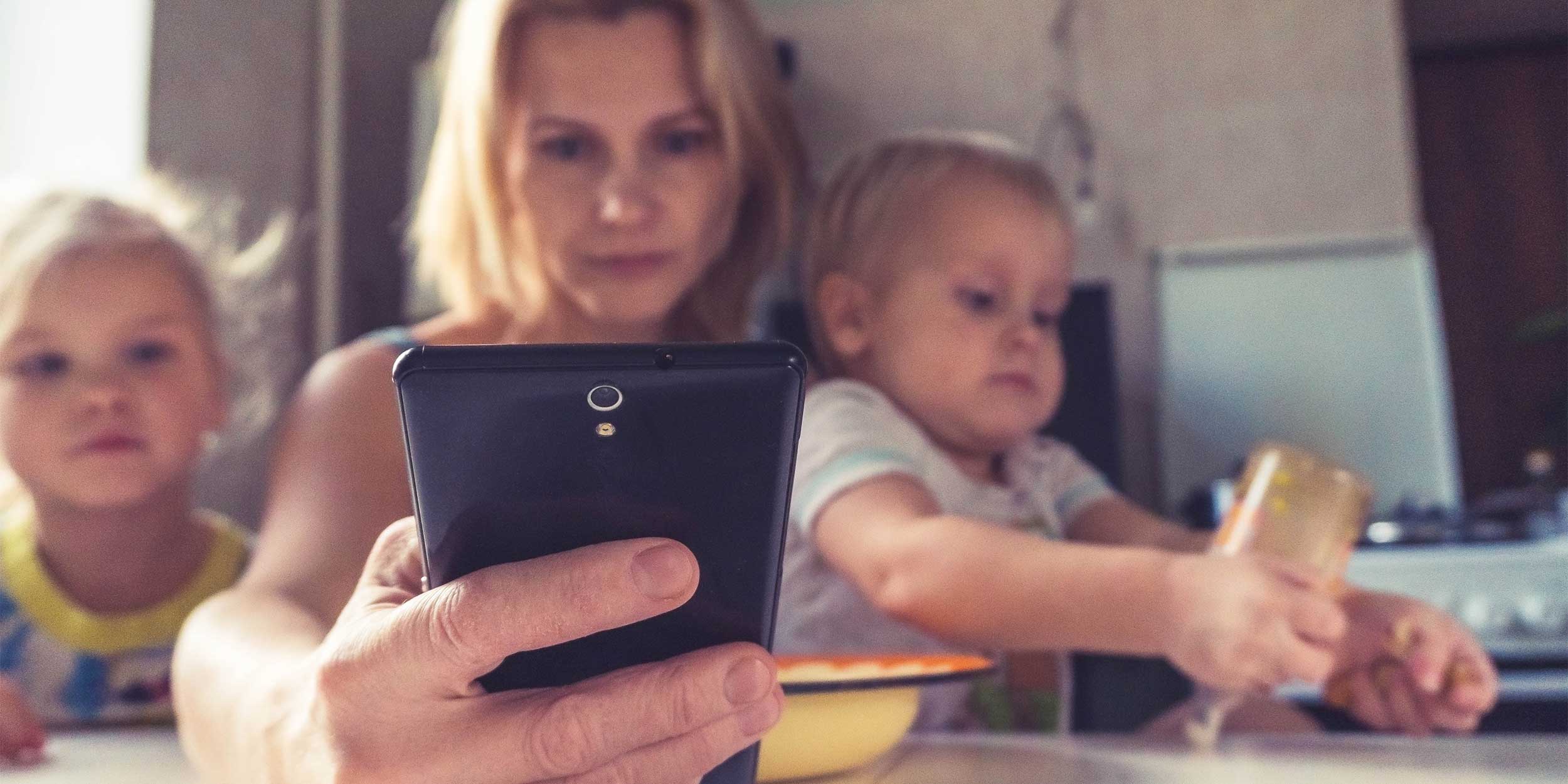Is it time for a digital detox?
WellbeingArticleJanuary 13, 2023
Do you feel anxious if you can’t find your phone? Are you glued to the internet? Are you addicted to social media? Then it might be time for a digital detox.
Technology is everywhere and it has become indispensable. But amid growing concerns that too much tech is bad for our brains, eyes and circadian rhythms, might it be time to build a better relationship with our devices and have a digital detox?
A digital detox is when you voluntarily take a break from using electronic devices such as smartphones, computers and social media platforms. Research suggests such detoxes can have mental health benefits by helping us to reengage with our “real” lives and to start daydreaming again.
But habits are hard to break, and dopamine is one of the culprits. Dopamine is the neurotransmitter at work in the brain’s reward circuits. It helps us to learn, move and remember things, and can be boosted naturally by a healthy diet, sleep, learning new skills, meditation and exercise. Not enough dopamine can make us feel unwell and lack motivation. And the more deficient in dopamine we are, the more we may be susceptible to the lure of a quick fix from our digital devices.
Dr Anna Lembke, a Professor of Addiction Psychiatry at Stanford University School of Medicine, says our smartphones are making us all dopamine junkies. In this Guardian interview, Dr Lembke describes the smartphone as the “modern-day hypodermic needle: we turn to it for quick hits, seeking attention, validation and distraction with each swipe, like and tweet.”
Lembke’s book Dopamine Nation says social media is hardwired to hook us, just like slot machines: “We've been conditioned like Pavlov’s dogs, to have a little mini spike in dopamine when we hear the alert… followed immediately by a little mini dopamine deficit state below baseline tonic levels, that drives the compulsion to seek out the drug.”
So are our screens a dangerous addiction, or an indispensable tool for modern life? And if the answer is a bit of both, how do we get the balance right?
Do I need a digital detox?
The COVID-19 pandemic has shown how tech can be a force for good. For those fortunate enough to be digitally connected, social media has been a lifeline in times of isolation. What’s more, digital media and mobile devices allow ideas and connections to grow.
The problem is that as well as being a force for good, our phones can become an unhealthy addiction. “Be mindful of your phone use and better understand the relationship you have with your devices,” says Dr Denis Cronson at LiveWell by Zurich.
“Through its negative impact on sleep, stress and obsession, a constant connection to your smartphone can impact your quality of life. Be brutally honest with yourself, and if you think your screen time is affecting your physical and mental wellbeing, then it may be time for a digital detox. You don’t have to quit your devices altogether. You may just need to set your phone aside for a few hours every now and then, or even disconnect completely from the internet for a day or more.”
Why is a digital detox good for health?
When we’re not staring at a phone, our minds wander – something which sounds pointless but is actually very valuable. The pioneering science journalist Sharon Begley wrote an influential blog post back in 2017 titled Smart Phone, Lazy Brain.
“Smartphones let us avoid activities that many people find difficult, boring, or even painful: daydreaming, introspecting, thinking through problems. Those are all so aversive, it seems, that nearly half of people in a 2014 experiment whose smartphones were briefly taken away preferred receiving electric shocks rather than being alone with their thoughts.
“Yet surely our mental lives are the poorer every time we check Facebook or play Candy Crush instead of daydream. We just don’t get our minds deeply into any one task or topic. Will that have consequences for how intelligent, creative, clever, and thoughtful we are?”
In the New Year, we should all perhaps make peace with boredom, and stop reaching for the phone every time we’re waiting for the kettle to boil.
Indeed, calls for digital detoxes and dopamine fasts have even been coming from the heart of Silicon Valley, and the architects of some of the apps designed to distract us. ‘Offlining’ may be the next big trend, but it isn’t a new thing, says Dr Peter Grinspoon from Harvard Medical School. “The original intent behind the dopamine fast was to provide a rationale and suggestions for disconnecting from days of technology-driven frenzy and substituting more simple activities to help us reconnect ourselves with ourselves and others. This idea is noble, healthy, and worthwhile, but it’s certainly not a new concept. Most religions also suggest a rest day or holidays without technological distractions, so that you can reflect and reconnect with family and community.”
How do you detox from digital?
Balance doesn’t necessarily mean shunning gadgets, but thinking more carefully about how we use them. In this popular TED talk, the psychologist Adam Grant shared his advice for a healthy digital diet. Grant says that mastery, mindfulness and mattering are the three keys to get into a ‘state of flow,’ which is key to our happiness. He says you can find flow in projects and activities that benefit other people, whether online or offline. And for Grant, that was taking to the screen to play Mario Kart with his extended family during lockdown. Peak moments of flow are having fun with the people we love, he says.
And if that doesn’t appeal, we can turn to an older source of wisdom (and an authority on social distancing) and get outside for some connection with the natural world instead. American philosopher Henry David Thoreau wrote in his diary in 1858.
“Each new year is a surprise to us. We find that we had virtually forgotten the note of each bird, and when we hear it again it is remembered like a dream, reminding us of a previous state of existence. How happens it that the associations it awakens are always pleasing, never saddening; reminiscences of our sanest hours? The voice of nature is always encouraging.”



